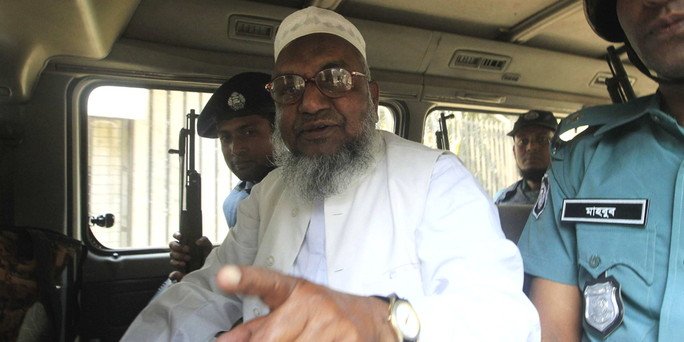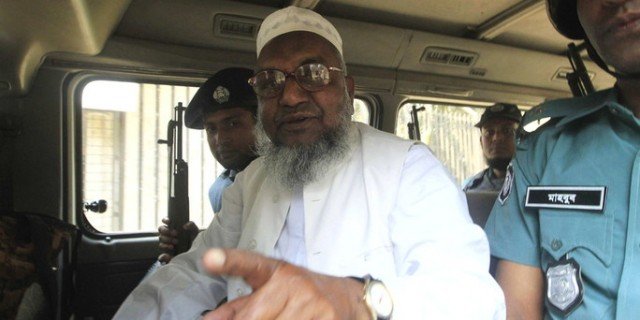
Bangladeshi Islamist leader Abdul Kader Mullah, who was convicted of atrocities committed during the 1971 war of independence with Pakistan, has been executed in Dhaka.
Abdul Kader Mullah is the first person convicted by Bangladesh’s International Crimes Tribunal (ICT) to be executed.
The ICT was set up in 2010 to investigate abuses committed during the 1971 conflict.
Abdul Kader Mullah was a senior leader of the Jamaat-e-Islami party.
At his trial earlier this year, Abdul Kader Mullah was described by prosecutors as the “Butcher of Mirpur”, a suburb of Dhaka where he is alleged to have carried out his crimes. These included the massacre of unarmed civilians and the killing of intellectuals who supported independence from Pakistan.
Abdul Kader Mullah always denied the charges.
Four other leading figures in Jamaat-e-Islami have also been convicted by the ICT and face the death penalty.
The execution of Abdul Kader Mullah took place at Dhaka Central Jail at 22:01 local time on Thursday evening, officials announced.
His family were allowed a final meeting with the 65-year-old and found him “calm”.

“He told us that he is proud to be a martyr for the cause of the Islamic movement in the country,” Abdul Kader Mullah’s son, Hasan Jamil, told the AFP after the meeting.
Hundreds of people gathered in central Dhaka to celebrate the news of his death.
But Jamaat-e-Islami – which has warned it will avenge his death – called for a general strike on Sunday.
Security has been tightened in Dhaka and around the country amid fears the execution is likely to inflame tensions.
At least three people are reported to have died on Thursday in sporadic clashes between Jamaat-e-Islami supporters and security forces.
Bangladesh broke away from Pakistan 42 years ago after a war which saw killings on a mass scale, the exodus of more than 10 million refugees and military intervention by neighboring India.
The government set up the special court to deal with those accused of collaborating with Pakistani forces who attempted to stop East Pakistan, as Bangladesh was then, from becoming an independent country. The two wings of Pakistan were held together mostly by a shared religion.
While many Bangladeshis have welcomed the work of the ICT, Jamaat supporters say it is a politically-motivated attempt to eradicate its leaders.
UN human rights commissioner Navi Pillay had written to the Bangladeshi authorities urging them to stay the execution of Abdul Kader Mullah, saying the trial had not met the international standards required for the death penalty.
Abdul Kader Mullah had been scheduled to be hanged on Tuesday, before gaining a reprieve pending a last-minute appeal against his death sentence.His appeal was dismissed earlier on Thursday by the Bangladeshi Supreme Court.
[youtube eZOleUkmkpw 650]